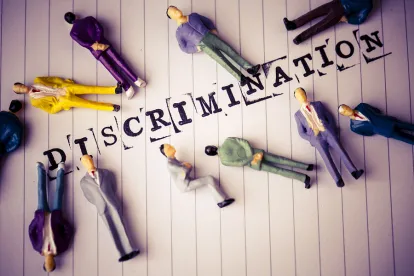Another day, another sex scandal. A Martian reviewing the Evening Standard could reasonably conclude that this is an issue limited to film, media and politics but there would undoubtedly be those in many less glamorous workplaces who also have stories to tell and hopefully feel empowered to do so by the flood of others coming forward.
Most employers are alive to these issues. We take it as read that employers should have robust equality/anti-harassment policies in place and should ensure that employees are trained in these. We also assume that employers would usually react fairly quickly to any such incidents and investigate thoroughly, using grievance and disciplinary procedures as appropriate.
Trickier when the allegations are historic, though, as so many of those hitting the press in the last weeks seem to be. What should an employer do in that circumstance? If the incident was a one-off, and there is no “continuing act” for the purposes of the Equality Act, the individual can’t now bring a Tribunal claim (the time period for bringing a claim is usually 3 months). And if the individual now brought a grievance? Well, the point of a grievance process is to resolve or remedy the situation, so isn’t it too late? In relation to the original incident, potentially yes, but remember that dismissive treatment of a new complaint of an old incident of harassment could potentially be an act of discrimination in itself and so start a new 3 month clock ticking. Too rigid an adherence to the principle that the subject matter of a grievance must be recent, relevant and resolvable could get you into unexpected trouble here.
And how would the employer deal with the alleged perpetrator? Even if that complaint were now upheld, can someone really be disciplined for something that happened so long ago? Surely a dismissal would be unfair?
Not so, or not necessarily, at any rate. The key here is for employers not to make assumptions. Any such allegation needs to be investigated in broadly the same way that you might investigate a more recent incident of the same sort. There will undoubtedly be obstacles – the passage of time might make finding witnesses harder, for example – but without investigating, the employer will never know. So many of the incidents splashed across the media recently show that one person stepping forward has led to the floodgates opening. So it might be the tip of the iceberg, but otherwise the passage of time will generally affect the question of remedy rather than the process of investigation.
Just because the individual is too late to bring a Tribunal claim doesn’t mean that the employer can’t take action (assuming the alleged perpetrator is still employed). If it came to light that an employee had stolen money from the business ten years ago, the business could undoubtedly still take action and the same principle applies here. If it would have been fair to dismiss the perpetrator when it happened, the passage of time won’t necessarily make that dismissal any less fair. There are two main exceptions to this – first, if the employer knew about it all the while and only now does something about it because the “mood music” around such allegations has changed, or second, if there have been similar known behaviours by others in the interim which also went unpunished.
More complex to consider might be the relevance of the change in prevailing public mood in relation to sexual harassment issues. With due acknowledgment that all sexual harassment is, by definition, distressing for the victim, some incidents are inevitably less so than others. An employer might not have dismissed an individual for a “hand on knee” offence ten/fifteen/twenty years ago. But now? We are all much more alive to the fact that such behaviour is not acceptable. So is there any defence or mitigation in the fact that such behaviour was more widespread and accepted (even if only in the sense of “not complained about”, rather than “acceptable”) in the past? Not an attractive argument for someone to run in their own defence, but perhaps something an employer might need to ponder. It would seem unfair to “hang” an employee now for doing something which, when he/she did it, was still deplorable but nonetheless relatively common currency or not the matter of more than a sharp word from the boss.
Do remember as well that employers can take adverse PR into account when deciding how to act – on the basis that reports of the harasser’s alleged actions may have brought the company into disrepute. It’s not a magic bullet, but another issue to add to the mix. But remember also the Daily Mail factor, i.e. that the report of the allegation will probably destroy the employee and smear the employer irretrievably even if the allegation later turns out to be largely or wholly unfounded, a point which is unlikely to be reported at all. So, acting on the basis of adverse PR without proper enquiry into the truth of the matter could well lead to the alleged perpetrator’s dismissal being unfair.
What many of these current complaints do make clear is the risk which an employer takes if it raises with the complainant any of the undoubted prospective downsides of making a harassment complaint, whether of conduct years ago or much more recent. That is the case even if it does so only to help and with no more sinister intent than that he/she can make an informed decision on the point. Seeking to stifle or hush-up an allegation is clearly totally inappropriate, but that is not in any sense the same as explaining, if asked, that the complainant may damage working relationships, lead to counter-allegations by the perpetrator, potentially not be upheld, or at least not lead to the perpetrator losing his/her job. Those are facts, not arguments, but it is easy to see that they may be heard as reasons why the complainant should not go on with it. So be careful about offering such advice, however well-intentioned.




 />i
/>i

